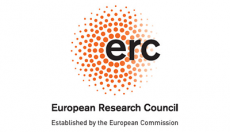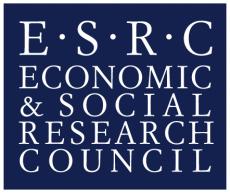Reclaiming the focus of Assisted Voluntary Return (and Reintegration) from the EU
Posted
Time to read
Guest post by Antonella Patteri. Antonella Patteri is a Post-Doctoral Research Fellow at the Institute of Law Studies (INP PAN, Warsaw) and an honorary fellow at Birkbeck College, University of London (PhD in Politics). Her current research at INP PAN, conducted as part of the FAiR project funded by Horizon Europe, looks at the fundamental rights compliance of return-related procedures.
Assisted voluntary return (and reintegration) (AVR(R)) programs represent a specific aspect of the European Union’s (EU) return policy. Assistance within AVR(R) programs and eligibility criteria vary among EU Member States and according to actors involved, but benefits typically include individual counselling, pre-departure support (administrative, medical, legal and psychological) and travel arrangements (such as facilitating identification and the acquisition of travel documents, and sponsoring of the return journey), with possible access to reintegration packages. The EU Strategy on Voluntary Return and Reintegration of 2021 reiterated the need for EU Member States to increase the ‘voluntary’ uptake of returns, to be prioritized over forced return as grounded in the Return Directive (2008/115/EC). Even though since at least 2017 all EU Member States had active AVR(R) programs, the number of individuals assisted via AVR(R) remains low (as recently assessed by Dennison).

Within the spectrum of deportations, the EU and its Member States tend to position AVR(R) programs as more compliant with human rights providing for humane, dignified and safer type of return (compared to forced return). AVR(R) interventions are often presented as humanitarian rather than as immigration control, (as addressed by Paasche), somehow downplaying the pains of deportation (read work by Borrelli). The human rights connotation of AVR(R) procedures, their political and moral appeal, together with their cost-effective dimension, often results in policy and discursive promotion as ‘more successful’ returns. Yet, how the efficiency of AVR(R) programs is measured remains unclear (as stressed also by Salgado at al.), with serious concerns arising from post-deportation risks to safety and livelihoods that returnees face (Kosravi et al.).
Research carried out within the FAiR project on implementing a human rights approach in AVR(R) across 9 EU Member States provides policy recommendations to the EU and its Member States to strengthen in practice frameworks of protection for incentivized (enforced) returns (that is returns enforced within spectrums of voluntariness, as framed by FAiR researchers). AVR(R) should allow in practice for the realization of the right to return ‘humanely’, i.e., in compliance with stronger procedures that protect individual rights throughout the return process, including the right to choose non-return. Realistically, appeals to increase AVR(R) are in practice not really only grounded on human rights considerations, pertaining also to efficient migration management goals.
On the 12th of September 2024, the Swedish right-wing government announced that, starting in 2026, it would increase financial support with grant amounts for eligible candidates choosing to return in a ‘voluntary’ manner to their country of origin or another country where they have a right to stay. The amount would be raised from 10,000 SEK per adult (about 884,00 EUR) to 350,000 SEK (31,000 EUR approximately). The decision is being taken despite a government inquiry advising against increasing financial benefits for ‘voluntary’ returnees. This announcement follows the introduction, in 2023, of a new immigration policy by the Swedish government providing for an enhanced mandate for the Swedish Migration Agency, the Swedish Police and the Swedish Tax Agency to collaborate in increasing the number of returns. The on-going review of Sweden’s regulatory framework on asylum aims to adjust it to the minimum level required under EU law to deliver more “responsible and restrictive regulations”.
The formulation of wide-reaching repatriation initiatives, such as the one recently announced by the Swedish government, could appear as a step forward towards investing into returnees’ reintegration plans and individual development post-return. In truth, however, concerns can be raised on the uses of (more) incentivized (enforced) returns, to morally and politically appeal to the conduct of returns ‘at all costs’ under AVR(R) ‘more humane’ approach. While the core aspect of voluntariness within AVR(R) programs assigns to this type of return an explicit adherence to human rights principles and procedures of return - sustained by individuals informed and consensual decision-making – this is not often the case. Indeed, ‘voluntary’ return can occur in the absence of acceptable alternatives for prospective returnees beyond destitution (see work by Cleton and Schweitzer), with such returns falling along a continuum of forced return disguised deportations. Further, the presumption of returning individuals to countries/situations that are safe or their qualifying their returns as ‘sustainable’ remains problematic (as assessed by Kuschminder).
Even though stimulating ‘voluntary’ return through financial initiatives and other support has always been part of AVR(R) designing and programming in the EU, the reported plan of the Swedish government to pay such amount for migrants to leave the country voluntarily can raise concerns. Encouraging acceptance for individuals to return ‘back home’ - (considering also the problematic formulation of this assumption, as addressed by Kalir) – further feeds into the argument that return will ease the burden on Sweden’ social welfare system: long-term unemployed or low-income migrants could stop relying on state benefits and accept the financial incentive (Wallis). In other words, what is being incentivized and possibly enforced is migrants effective return to third countries, with proponents of this policy treating ranges of the Swedish population as substantially (self) deportable, despite and besides any integration efforts. By incentivizing them to leave through the prospective offered budget, AVR(R) is already presented as providing the best alternative to their staying, regardless of migrants’ convergent right to voluntarily choose not-to-return without being ‘softly coerced’ - as it seems in regards to the proposed policy - more openly into it.
Ultimately, Sweden’s latest position on AVR(R) as a pathway to increase returns without specifically addressing of how to improve impact of returnees’ rights during such procedures, urges us to complement and reclaim the focus of AVR(R): from returning individuals with their (often dubious) consent to the conditions applied to their return. The comprehensive implementation of AVR(R) should provide access for a more rights protective option, presented among feasible alternatives. For this end, more serious discussions and designing of EU AVR(R)s policies and programming are needed to advance human rights frameworks of return, and protect the right to return ‘voluntarily’ (or not to return at all if conditions apply) from being fully appropriated by new incentivised deportations delirium. At the EU level, for instance, these efforts could be translated into introducing human right monitoring mechanisms pertinent to all Member States (fundamental rights monitoring only exists for forced return) that would increase oversight and accountability over AVR(R) procedures and strengthen existing safeguards, including halting returns if risks of various kind occur (as put forward within FAiR). Simply put, the instrumentalization of AVR(R) for mere deportation goals should be avoided by rescuing its role from facilitating returns as such to - above all - providing better safeguards for human-rights compliant returns.
Any comments about this post? Get in touch with us! Send us an email, or post a comment here or on Facebook. You can also tweet us.
How to cite this blog post (Harvard style):
A. Patteri. (2024) Reclaiming the focus of Assisted Voluntary Return (and Reintegration) from the EU . Available at:https://blogs.law.ox.ac.uk/border-criminologies-blog/blog-post/2024/11/reclaiming-focus-assisted-voluntary-return-and. Accessed on: 19/11/2024Share
YOU MAY ALSO BE INTERESTED IN
With the support of








